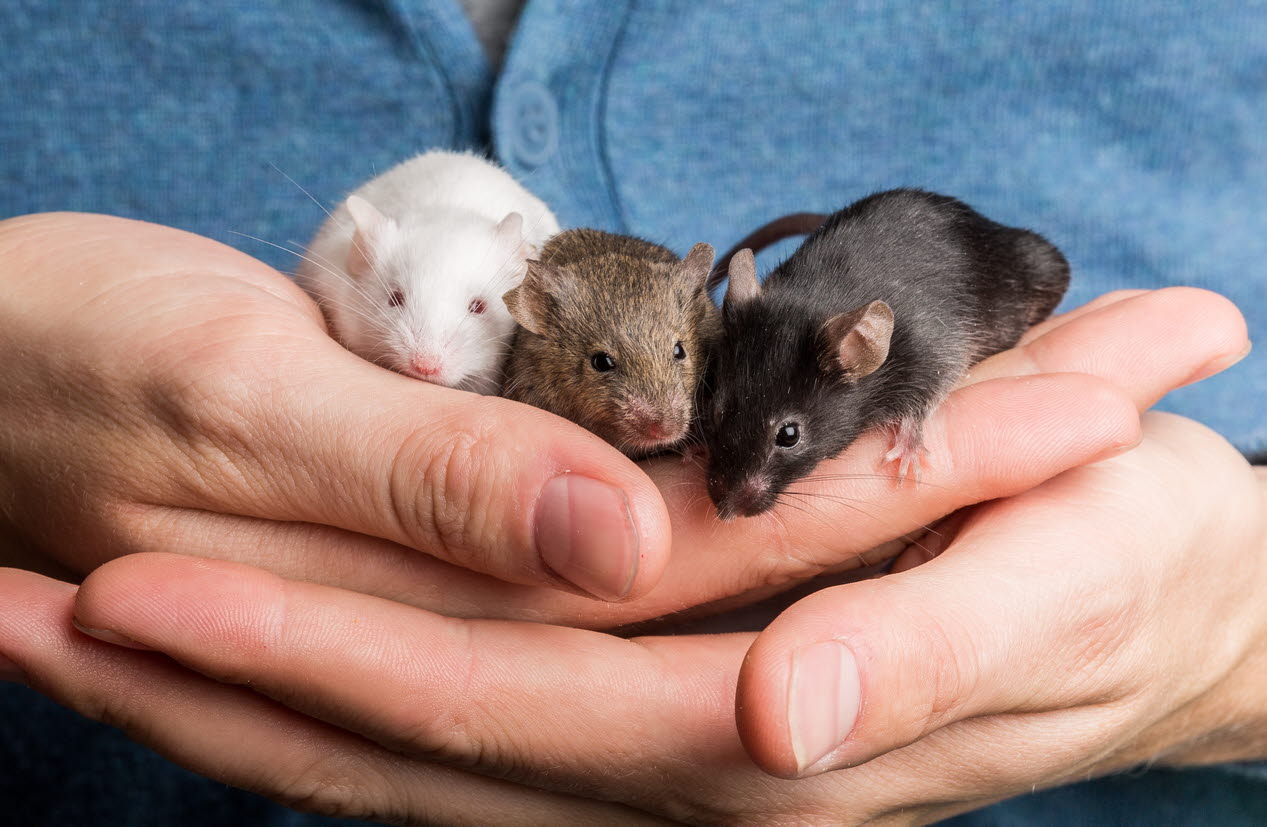Keeping pet mice

Can you keep a mouse as a pet?
Mice are active little creatures and make great pets. Having a pet mouse is quite low maintenance as they are quiet and they don’t take up a lot of space. They need to be kept in same-sex pairs (preferably littermates) as they are very social and it can be quite entertaining watching them play with one another. Paired females tend to get on better than paired males.
They are best suited to people with limited time or budget and are especially good for school-aged children and people who live in apartments. They generally have a lifespan of 1-3 years.
What can mice eat?
As many people know, mice eat almost anything including grains and meat products. A combination of fresh fruits and vegetables, as well as a small amount of commercial mouse cubes or pellets, will provide a good diet for a mouse.
An example of fresh fruit and vegetables include apple (without seeds), bananas, beans, berries, Asian greens and broccoli. Brussel sprouts, carrots, celery, citrus fruits, fresh corn, melon, parsley, peas, pears, stone fruits and tomatoes are also a good choice.
Mice should never be fed solely on a diet based on grains or seed mixes. Bread, breakfast cereal, cooked pasta and rice and seeds should be considered a treat.
It’s a good idea to provide some fresh hay for extra fibre and this is also is a good material for mice to build nests with to help keep themselves warm.
Take care not to overfeed your mice as this can cause problems such as diarrhoea and obesity. You should always provide your mice with fresh, cool water.
The best mouse house
Mice need a very secure cage made of metal or plastic with a good lid or roof. They are great escape artists and are unlikely to return if they get out! Any wire flooring should be covered to prevent damage to their feet.
Birdcage-type enclosures are usually better than glass or plastic tubs. Mice are particularly susceptible to heatstroke so old aquariums should be avoided as they can become dangerously hot and humid. Always provide your mice with lots of ventilation and keep them in the shade at all times.
Bedding should be absorbent and changed regularly. Wood chips can be used but these should be unscented to prevent any respiratory problems. Cat litter made from recycled paper products are a good choice. Never use sawdust as bedding as it is too dusty. Change bedding two to three times weekly. Provide a nest box (an old flower pot works well) for sleeping so the mice can feel safe, secure and warm. Nesting material can be in the form of shredded newspaper or paper towel.
You should provide a bowl and water bottle that attaches to the side of the cage to prevent spillage.
Mice are very intelligent and need lots of mental stimulation. An exercise wheel is a must for these busy little creatures. You can also provide empty toilet roll tubes and pipes for tunnels as well as a mini hammock and boxes for hiding.
It’s also a good idea to provide your mice with a wooden chew block to help to keep wear down your mice’s teeth (as their teeth grow continuously).
Handling mice
Mice may be timid but with lots of handling from a young age, they will become used to being held. Always handle your mouse calmly and gently. It is best to pick a mouse up from the base of the tail and then quickly support it underneath. Never pick your mouse up from the tip of its tail.
Bathing mice
Mice are particularly fastidious about keeping themselves clean so they should not need a regular bath. In fact, a change in coat can indicate underlying disease or illness so it’s best to get this checked with a veterinarian.
If you do need to bathe your mouse, a gentle sponge bath with a warm damp cloth is best. Never put your mouse in a tub of water. Ensure your mouse is dry using a dry cloth and never use a hairdryer as the noise and heat can be very stressful for your mouse.
How to care for mice
If mice are kept in a clean environment with a good-quality diet, they should remain healthy and happy. A healthy mouse is alert, active and has a well-rounded body. Their eyes, nose and bottom should be clean and free from any discharge.
Sneezing or laboured breathing can indicate respiratory problems whereas drooling or a wet mouth may indicate a dental issue. If you are ever worried about your pet mouse it is best to ask your veterinarian for advice.
